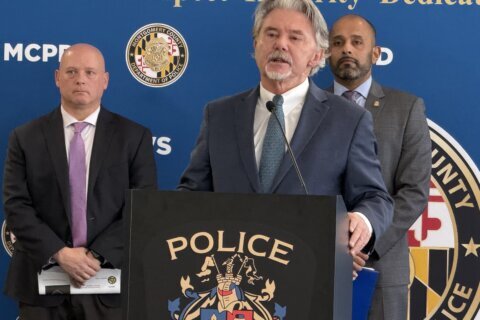When the Montgomery County Board of Education hammered out the details of a new budget plan, it took a closer look at whether virtual classes should be cut.
The “Montgomery Virtual Academy” is a virtual learning program that largely came about due to the pandemic, with parents and teachers concerned about crowding in classrooms.
However, there are now questions about whether the program is still necessary.
“The board of education is highlighting these programs in order to hear specific feedback from the community,” board members said in a statement. “The board must focus on ensuring there is a return on investment for all MCPS students in a large and complex school system.”
The board heard from members of the community during a public hearing on the possible cuts Tuesday.
Andrea Levy told the board that virtual classes were extremely helpful for her son who has special needs.
“We have a huge, robust group of virtually successful learners in our special needs community that would not be able to go to in-person schools and would not be able to succeed,” Levy said.
Nancy Perry, a teacher, echoed that thought.
“Our student body includes students from all backgrounds. … However, they all have one thing in common — they learn better outside of a traditional classroom setting,” Perry said.
Perry noted that many people signed up for the program due to COVID-19, but she added that others joined “because they saw it as a new option and opportunity for their children to be educated.”
Board members said that the “current economic climate” has forced them to take a serious look at “what is essential, what the school system can afford, and what is really moving the needle for MCPS in terms of student achievement.”
Another program the board is considering cutting is the “MCPS Innovative Schools initiative,” which gives students an extended academic year at Arcola Elementary School in Wheaton-Glenmont and Roscoe R. Nix Elementary School in Silver Spring.
For students in the program, their first day starts 30 days earlier than most.
Their academic year begins soon after July 4, continues for six weeks into mid-August and then resumes in September. The early start is supposed to reduce summer learning loss and give students a jump-start on their school year.
The board decided to keep the Virtual Academy program, they outlined in a release with their passed 2025 budget Thursday morning, but the board will continue to asses the program’s value.
Get breaking news and daily headlines delivered to your email inbox by signing up here.
© 2024 WTOP. All Rights Reserved. This website is not intended for users located within the European Economic Area.







